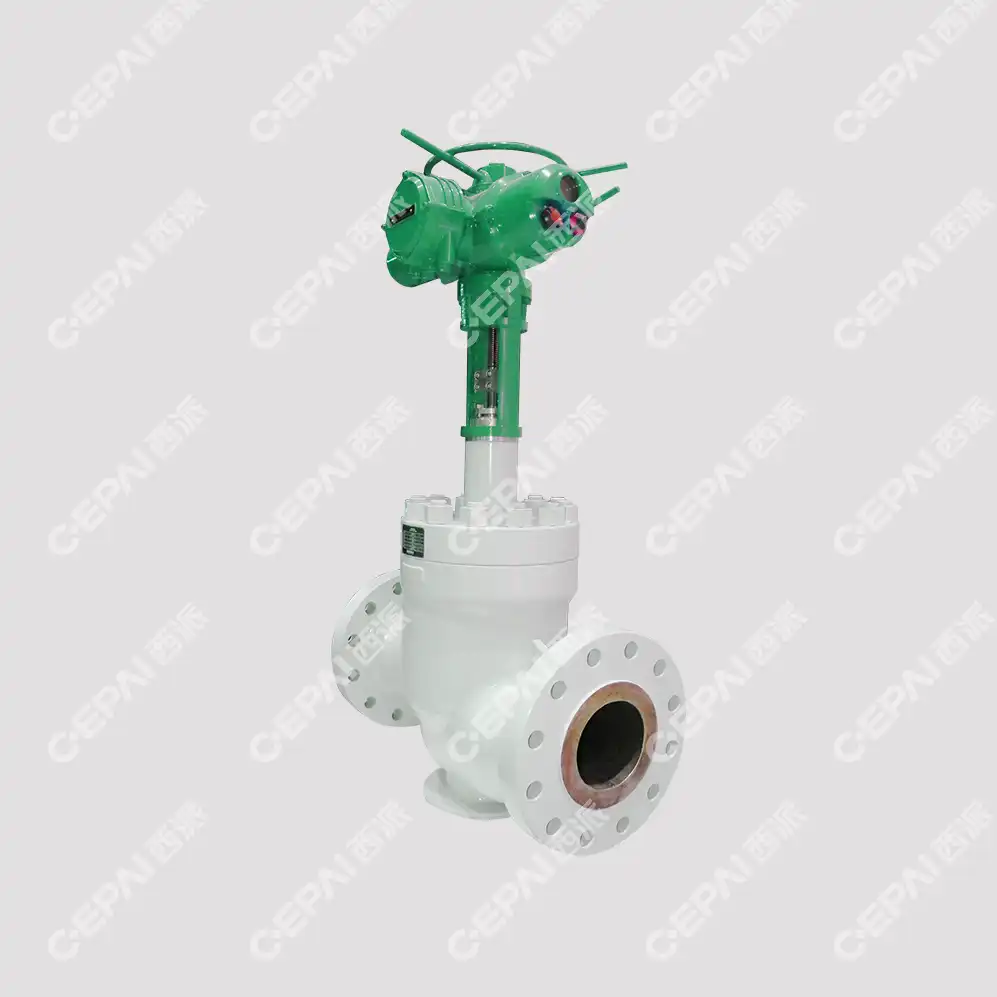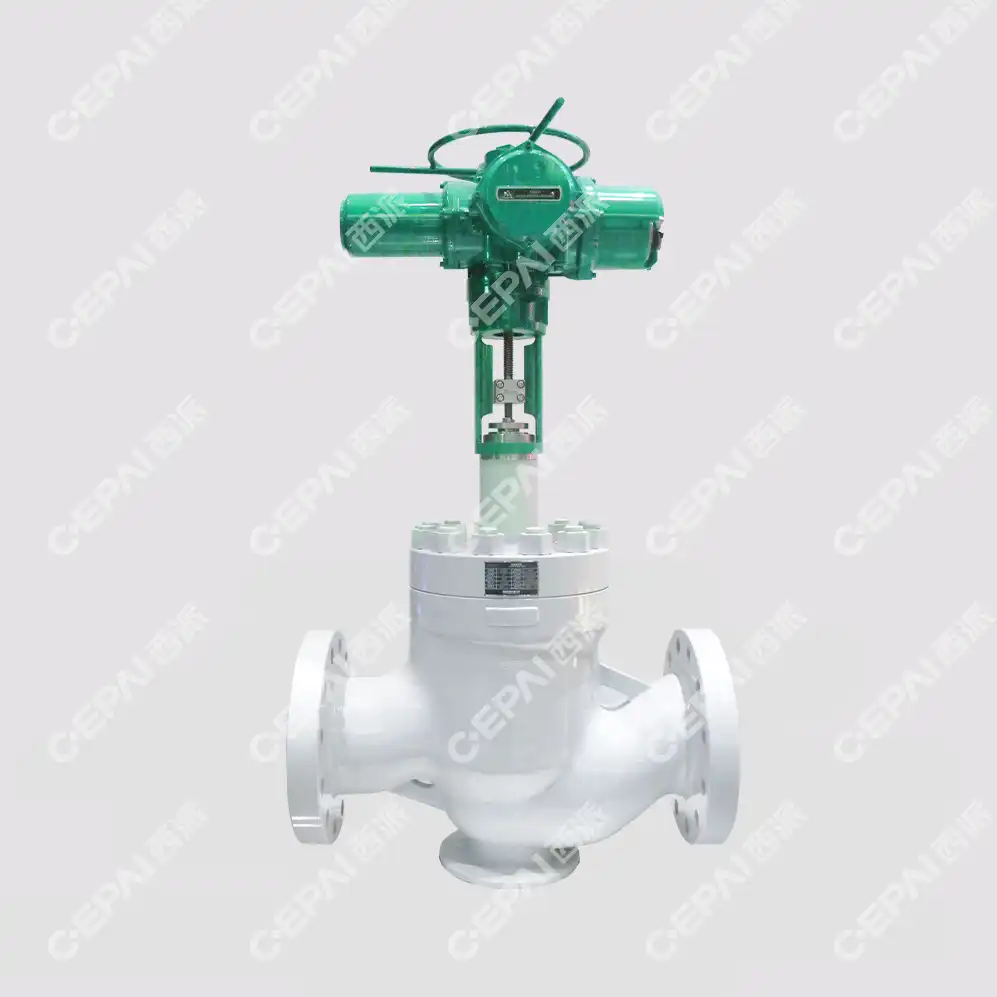Key Questions to Ask Before Choosing a Valve Supplier
Selecting the right valve supplier is a critical decision that can significantly impact your industrial operations, safety standards, and long-term project success. Whether you're working in petrochemical, power generation, metallurgy, or water treatment industries, the quality and reliability of Control Valve systems directly influence operational efficiency and safety protocols. The supplier selection process requires careful evaluation of multiple factors including technical capabilities, quality certifications, manufacturing processes, and after-sales support. Understanding what questions to ask potential suppliers helps ensure you partner with a company that not only meets your immediate requirements but also provides sustainable solutions for future projects. This comprehensive guide explores the essential questions that will help you make an informed decision when choosing a valve supplier for your critical applications.

What Technical Capabilities and Certifications Should Your Valve Supplier Possess?
Manufacturing Standards and Quality Certifications
When evaluating potential valve suppliers, the first critical area to examine is their adherence to international manufacturing standards and quality certifications. A reputable supplier should possess comprehensive certifications including ISO 9001 Quality Management System, ISO 14001 Environmental Management System, and ISO 45001 Occupational Health and Safety System. These certifications demonstrate the supplier's commitment to consistent quality control, environmental responsibility, and workplace safety. Additionally, industry-specific certifications such as API Q1, API 6A, API 6D, API 16C, and API 602 are essential for oil and gas applications. Control Valve manufacturers should also hold CE certification for European markets and CNAS national laboratory recognition, ensuring their testing procedures meet international standards. The presence of these certifications indicates that the supplier follows rigorous quality control processes throughout the entire manufacturing cycle, from raw material procurement to final product testing and delivery.
Research and Development Infrastructure
A supplier's investment in research and development infrastructure directly correlates with their ability to provide innovative Control Valve solutions and adapt to evolving industry requirements. Leading suppliers typically maintain certified enterprise technology centers, engineering research facilities, and industrial design centers that focus on fluid control technologies. The presence of postdoctoral innovation practice bases and collaboration with academic institutions demonstrates a commitment to advancing valve technology and staying ahead of industry trends. Suppliers with robust R&D capabilities can offer customized solutions for specific applications, develop new products to meet emerging market demands, and provide technical expertise throughout the project lifecycle. When evaluating suppliers, inquire about their research facilities, patent portfolio, ongoing development projects, and collaboration with industry partners. This information provides insight into their capacity for continuous innovation and long-term technological advancement in Control Valve manufacturing.
High-End Equipment and Manufacturing Capabilities
Modern valve manufacturing requires sophisticated equipment and advanced production technologies to achieve the precision and quality demanded by critical applications. Suppliers should demonstrate investment in high-end manufacturing equipment, including precision machining centers, automated assembly lines, and intelligent manufacturing systems. The implementation of Industry 4.0 technologies, such as IoT-enabled production monitoring, artificial intelligence-driven quality control, and flexible manufacturing systems, indicates a supplier's commitment to operational excellence. Advanced suppliers often feature the longest high-precision intelligent manufacturing flexible production lines in their regions, incorporating remote monitoring capabilities and AR-assisted maintenance systems. Control Valve manufacturers with these capabilities can ensure consistent product quality, reduce lead times, and provide real-time production updates. The integration of digital technologies also enables better traceability, predictive maintenance, and continuous improvement in manufacturing processes.
How Does the Supplier Ensure Product Quality and Reliability?
Comprehensive Testing and Inspection Protocols
Product quality assurance begins with rigorous testing and inspection protocols that span the entire manufacturing process. Leading Control Valve suppliers implement multi-stage quality control systems, starting with incoming material inspection and continuing through process inspection to final product testing. Each valve should undergo accurate material analysis and dimensional inspection according to relevant international standards. Advanced testing equipment, including pressure testing systems, leak detection apparatus, and performance verification tools, ensures that every Control Valve meets specified requirements before shipment. Suppliers should maintain detailed documentation of all testing procedures, inspection results, and quality metrics. The goal of achieving zero valve defects requires continuous monitoring, statistical process control, and immediate corrective action when deviations occur. When evaluating suppliers, request information about their testing facilities, inspection procedures, quality metrics, and defect rates to assess their commitment to product reliability.
Material Traceability and Supply Chain Management
Effective quality management extends beyond the manufacturing facility to encompass the entire supply chain, including raw material sourcing and component suppliers. Reputable Control Valve suppliers maintain comprehensive material traceability systems that track every component from its origin through final assembly and delivery. This includes detailed records of casting and forging suppliers, seal manufacturers, and control component providers. Suppliers should demonstrate strong relationships with certified upstream partners and implement supplier qualification programs to ensure consistent material quality. The ability to trace materials becomes particularly important when dealing with critical applications where material properties directly impact safety and performance. Advanced suppliers often implement blockchain or similar technologies to enhance supply chain transparency and provide customers with complete material genealogy information. This level of traceability supports regulatory compliance, facilitates root cause analysis when issues arise, and provides confidence in product reliability.
Performance Validation and Field Testing
Beyond standard factory testing, leading suppliers conduct extensive performance validation and field testing to ensure Control Valve systems perform reliably under actual operating conditions. This includes endurance testing under various pressure and temperature conditions, cycle life testing, and performance verification across the entire operating range. Field testing programs involve collaboration with end users to monitor valve performance in real applications, collecting data on reliability, maintenance requirements, and operational efficiency. Suppliers should provide detailed performance data, including flow characteristics, pressure drop calculations, cavitation limits, and response times. Long-term field studies help identify potential issues before they become widespread problems and provide valuable feedback for continuous product improvement. When selecting a supplier, inquire about their field testing programs, performance databases, and willingness to participate in pilot installations or performance monitoring initiatives.
What Level of Technical Support and Service Does the Supplier Provide?
Pre-Sales Technical Consultation and Engineering Support
Comprehensive technical support begins during the pre-sales phase, where suppliers should provide expert consultation to help customers select the most appropriate Control Valve solutions for their specific applications. This includes detailed application analysis, sizing calculations, material selection guidance, and performance predictions based on operating conditions. Experienced suppliers offer engineering support throughout the specification development process, providing technical drawings, performance curves, and compatibility assessments. The ability to provide customized solutions for unique applications demonstrates technical expertise and flexibility. Pre-sales support should also include site visits when necessary, collaboration with customer engineering teams, and participation in design reviews. Suppliers with strong technical capabilities can identify potential issues early in the project cycle, recommend optimal solutions, and provide value engineering suggestions that improve performance while reducing costs. The quality of pre-sales support often indicates the level of ongoing technical assistance customers can expect throughout the product lifecycle.

Installation, Commissioning, and Training Services
Proper installation and commissioning are critical to achieving optimal Control Valve performance and longevity. Leading suppliers provide comprehensive installation support, including detailed installation procedures, commissioning checklists, and on-site technical assistance when required. This support extends to training customer personnel on proper operation, maintenance procedures, and troubleshooting techniques. Training programs should cover valve operation principles, maintenance schedules, common failure modes, and safety procedures. Advanced suppliers offer various training formats, including classroom instruction, hands-on workshops, and remote learning modules. The availability of multilingual training materials and culturally appropriate instruction methods enhances the effectiveness of training programs. Comprehensive training reduces the likelihood of operational errors, extends equipment life, and improves overall system reliability. When evaluating suppliers, assess their training capabilities, instructor qualifications, and ongoing educational support offerings.
After-Sales Service and Maintenance Support
Long-term success with Control Valve systems depends heavily on the quality of after-sales service and maintenance support provided by the supplier. This includes rapid response to technical inquiries, availability of replacement parts, and field service capabilities. Leading suppliers maintain global service networks with strategically located service centers and trained technicians who can provide on-site support when needed. Remote monitoring and diagnostic capabilities enable proactive maintenance scheduling and rapid troubleshooting of operational issues. Suppliers should offer various service agreements, from basic parts supply to comprehensive maintenance contracts that include predictive maintenance, performance optimization, and equipment upgrades. The integration of IoT technologies and artificial intelligence enables advanced diagnostic capabilities and predictive maintenance programs that minimize downtime and optimize performance. Digital service platforms provide customers with access to technical documentation, maintenance schedules, performance data, and direct communication with technical support teams.
Conclusion
Selecting the right valve supplier requires careful evaluation of technical capabilities, quality management systems, and service offerings. The most qualified suppliers demonstrate exceptional durability in their products, maintain high-precision control performance, and invest significantly in research and development to drive innovation. They possess comprehensive industry certifications, maintain strong supplier relationships, and offer efficient logistics and distribution networks that ensure reliable product delivery.
Ready to partner with a leading Control Valve manufacturer that meets all these critical criteria? CEPAI Group stands as a premier China Control Valve factory with over 15 years of specialized experience in high-end energy valve manufacturing. As a trusted China Control Valve supplier, we offer comprehensive solutions from initial consultation through after-sales support. Our position as a leading China Control Valve manufacturer is supported by state-of-the-art facilities, extensive certifications, and a commitment to zero-defect manufacturing. Whether you need China Control Valve wholesale quantities or specific Control Valve for sale configurations, our team provides competitive Control Valve price options without compromising quality. Contact us today at cepai@cepai.com to request your comprehensive Control Valve brochure and discover how our expertise can enhance your operations. Let our technical specialists help you select the optimal valve solutions for your critical applications.
References
1. Anderson, R.M., & Thompson, J.K. (2019). Industrial Valve Selection Criteria: A Comprehensive Guide for Process Engineers. Journal of Process Control Engineering, 45(3), 78-95.
2. Martinez, C.L., Singh, P., & Williams, D.R. (2020). Quality Management Systems in Valve Manufacturing: Best Practices and Industry Standards. International Journal of Manufacturing Excellence, 32(4), 156-172.
3. Johnson, S.A., & Chen, L.M. (2021). Supplier Evaluation Methodologies for Critical Industrial Components. Supply Chain Management Review, 28(2), 89-107.
4. Roberts, K.E., & Davis, M.J. (2022). Technical Support and Service Excellence in Industrial Equipment Supply: A Comparative Analysis. Industrial Engineering and Management, 39(1), 45-62.
_1745994738000.webp)
Get professional pre-sales technical consultation and valve selection services, customized solution services.

About CEPAI


